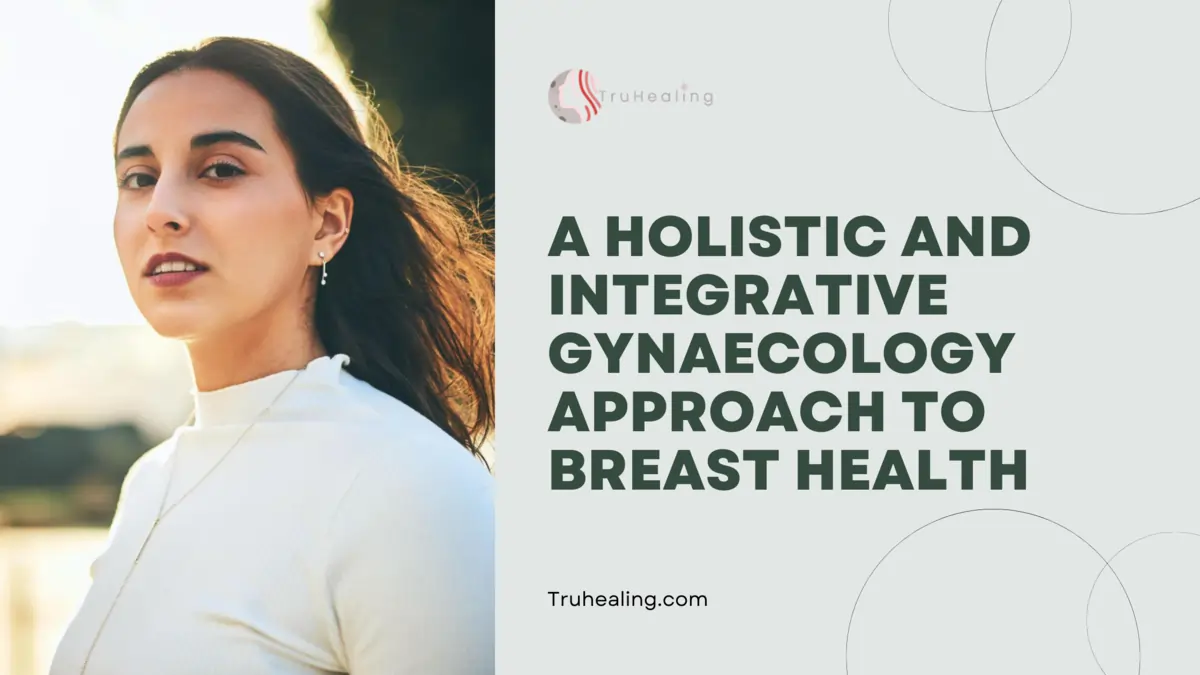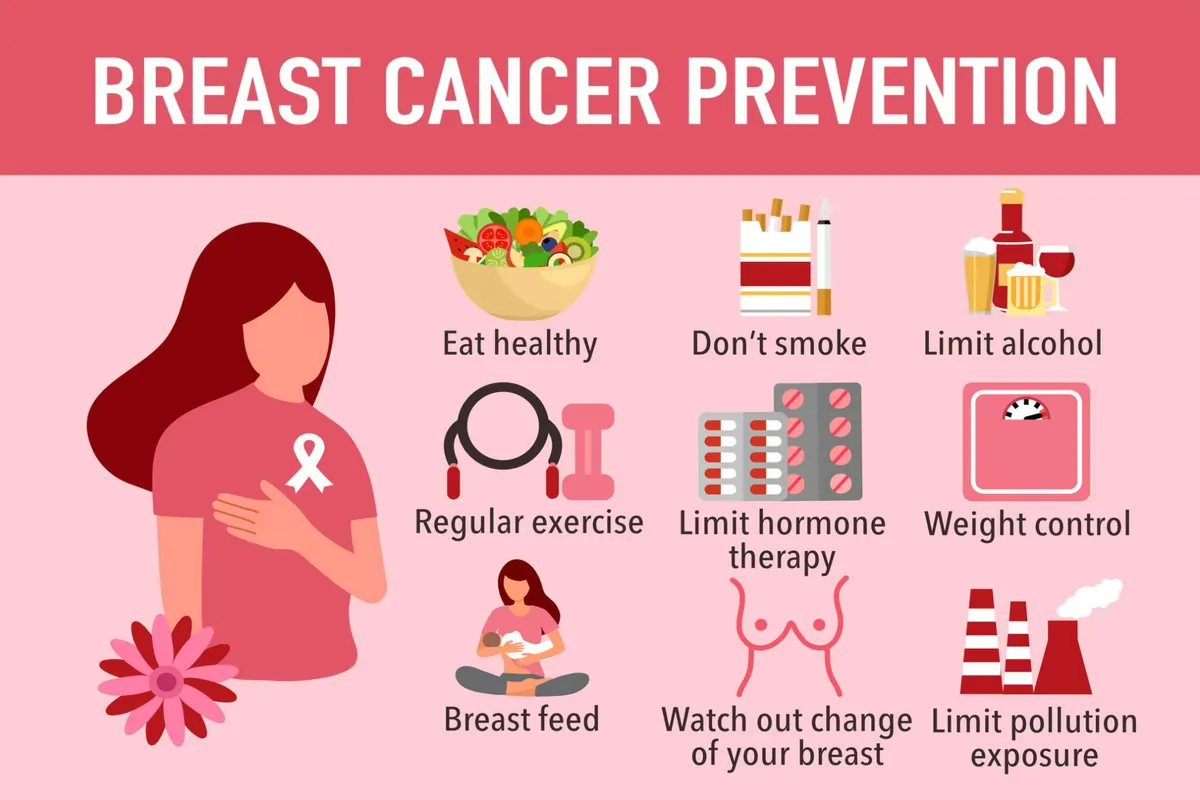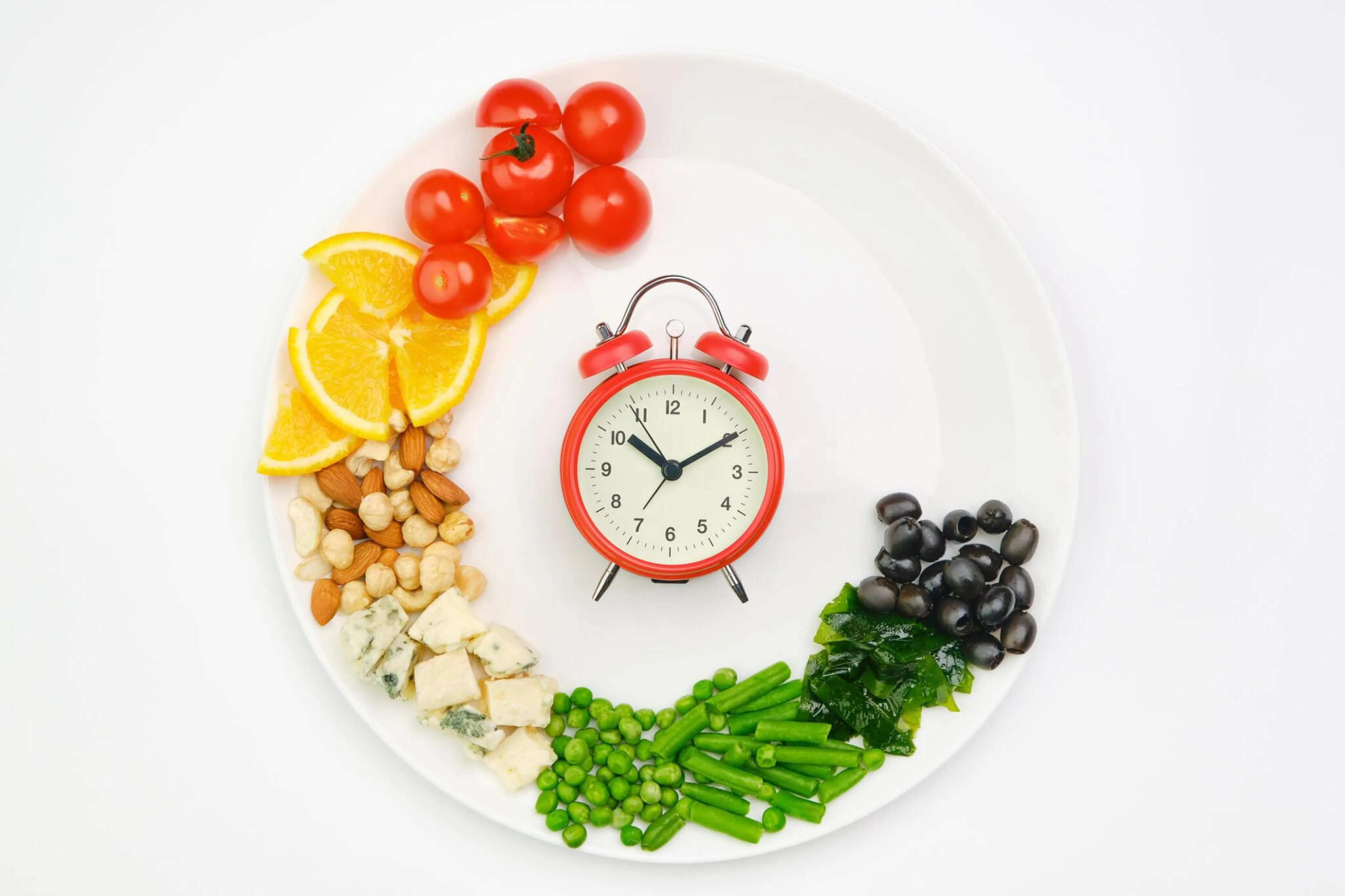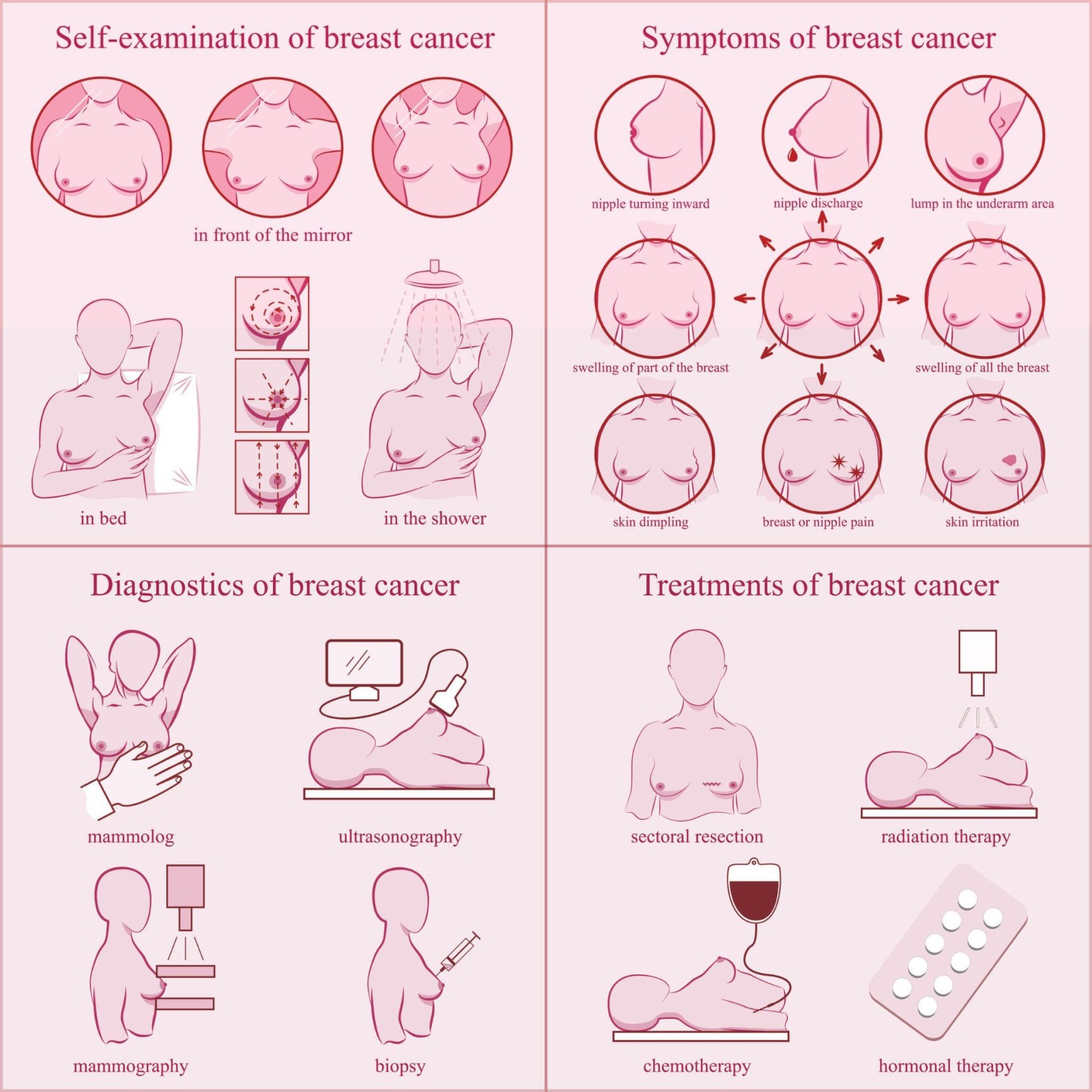A HOLISTIC AND INTEGRATIVE GYNAECOLOGY APPROACH TO BREAST HEALTH

In the last few months, I have had the opportunity to work with a lot of international clients while practicing in Dubai. I got a chance to learn from women of various nationalities, cultures, religions, etc. Many of them were smart, highly ambitious, high-achieving women. Regardless of their differences, they had some things in common, for example, the high incidence of breast problems. The occurrence of breast problems is at an all-time high, so many women are suffering from breast diseases, benign pre-cancerous and cancerous. I was mind-boggled to see the number of women suffering from breast problems regardless of their culture or nationality. What breaks my heart is these women were made to believe that it's normal to have breast disease and there's nothing much they can do about it except periodic monitoring. Hence, I needed to talk more about it and was inspired to write this blog.
Amid all the talk about breast cancer, the fear looms large - for ourselves and those we hold dear. We promise ourselves to do those regular breast exams, keep track of ultrasounds and mammograms, and remind our friends to do the same. But let's be honest - how many of us stick to it? The truth is, that less than 10% of us prioritize our health; maybe we think that by ignoring the topic, we can avoid the risk altogether. But that's a dangerous misconception.
In this article, I aim to inspire just a few more of us to take proactive steps not only for our well-being but also for the health of our loved ones, our mothers, and our daughters. It's time to face the facts.
First things first, let's understand the risk factors for developing breast cancer and how they apply to us.
- Previous Breast Cancer: If you've battled it before, it's crucial to stay vigilant with your check-ups and follow the prevention strategies outlined below.
- Genetics and Family History: Family ties can significantly impact your risk. Having a first-degree relative with breast cancer can increase your risk two to threefold. However, remember that only a small percentage of cases are directly linked to hereditary genes like BRCA1 and BRCA2.
- Environmental Factors: Environmental exposures play a significant role in breast cancer risk. Factors like radiation, certain pesticides, smoking, obesity, alcohol consumption, and hormonal factors can all contribute.
Understanding that our
risk is about 1 in 8 women in our lifetime, let's now shift our focus to
prevention strategies.
Prevention Tips:

Let's talk about how we can reduce our risk of breast cancer our risk of breast cancer and boost overall health. It all starts with strengthening our immune system. Follow these simple steps not only to lower your chances of breast cancer but also to prevent other illnesses:
- Quit Smoking: There's no upside to smoking. If you smoke, it's time to quit for good.
- Stay Active: Aim for 30 minutes of exercise five days a week. To reduce stress, add calming activities like walks, deep breathing, mindfulness, and restorative yoga.
- Hydrate: Drink plenty of water - aim for 8 to 10 glasses a day to help flush out toxins.
- Eat Colorful Veggies: Eat colorful veggies like squash, carrots, and tomatoes. They're packed with disease-fighting carotenoids.
- Include Healthy Fats: Incorporate foods like salmon, nuts, and olive oil into your diet. These natural sources of antioxidants help your body fight off diseases.
- Take Supplements: For an extra immune boost, consider adding vitamins E and C, as well as Omega-3 supplements, to your routine.
- Limit Alcohol: Cut back on alcohol consumption, or stick to a moderate amount, like 4 oz of red wine occasionally.
- Choose Wisely: Opt for organic, non-GMO, and hormone-free foods whenever possible to avoid harmful additives.
- Maintain a Healthy Weight: To lower your risk, shed those extra kilos and work towards maintaining a healthy weight.
- Explore Medical Options: Discuss medications like Tamoxifen and Raloxifene with your doctor, which are being studied for their role in breast cancer prevention. One of the most powerful ANTICANCER drugs your body can make is VITAMIN D. Check your levels and optimize them today…
- Practice Mindfulness: Engage in activities like prayer, meditation, and yoga to reduce stress and enhance your body's ability to heal.
Remember, our bodies have an incredible ability to heal themselves. Take the time each day to nurture your body and mind, releasing negative emotions and embracing joy. It's not always easy, but it's worth it for your health and well-being.

EAT AND LIVE YOUR
WAY TO BREAST HEALTH
What you put on your plate counts — Choosing foods that fight inflammation is crucial.
When you eat matters too — Sometimes, simplicity wins the day.
What to steer clear of — Avoiding acidic and inflammatory foods can play a big role.
Your top priority: Tackling inflammation head-on is key.
Breast cancer, sadly, is all too common. Shockingly, one in eight women faces a breast cancer diagnosis. If it feels like it's everywhere, you're not wrong.
Awareness campaigns are great, but we need to go beyond just knowing about it. Action is essential. Don't get me wrong, raising awareness is vital, and of course, we all want a cure. But prevention starts now. We need to prevent it from coming back so we can live life without the constant fear of cancer.
It's a brutal disease, one that takes so much from us. I genuinely hope for a cure. But in the meantime, it's up to us to take preventive measures.
Research has given us a roadmap for breast cancer preventionfor breast cancer prevention. Let's take it seriously and integrate it into our daily lives. As a woman and mother to two daughters, the topic of "optimal breast health" is always on my mind and is a cornerstone of my family's health regimen. Studies show that we can lower our risks, but it takes effort. Our focus should be on maintaining our best health and keeping inflammation at bay. Let's educate ourselves on the preventive steps we and our loved ones can take.
Today, before we focus on foods that can support better breast health. The following tips can aid in prevention and recovery.
Know Your Risks!
First things first, let's understand what factors that increase breast cancer that increase breast cancer or a recurrence. While genetics play a role, it's essential to note that around 90% of your risk is influenced by environmental factors and lifestyle choices - things you can change.
Previous Breast Cancer Diagnosis
If you've battled
breast cancer before, it's crucial to stay vigilant with your check-ups.
Additionally, if you've had breast biopsies that showed conditions like
"lobular or ductal carcinoma in situ" and "atypical ductal
hyperplasia," your risk is elevated.

Family History and
Genetics
Your family history plays a significant role in your risk of developing breast cancer. Women who have a first-degree relative (mother, sister, or daughter) with a history of breast cancer are at a higher risk compared to those without such a family history.
However, it's important to note that only a small portion, about 9%, of breast cancer cases can be directly linked to family history. An even smaller percentage is associated with specific genetic mutations like BRCA1 and BRCA2, which also increase the risk of other cancers such as ovarian and colon cancers.
Your risk is further increased if you have:
- A close relative (mother, sister, or daughter) diagnosed with breast cancer.
- Multiple generations of family members affected by breast or ovarian cancer.
- Relatives diagnosed with breast cancer at a young age (under 50).
- Relatives who had cancer in both breasts.
- Tested positive for BRCA1 and/or BRCA2 mutations
Additionally, having dense breasts can complicate cancer detection as tumors may be harder to spot on mammograms due to increased connective tissue.
Environmental Factors
Certain environmental factors can influence your risk of developing breast cancer:
- Exposure to ionising radiation
- Contact with DDT and pesticide contaminants (although research findings vary)
- Smoking and exposure to secondhand smoke
- Obesity, particularly gaining weight in adulthood.
- Alcohol consumption
- Having your first child at an older age
- Never giving birth
- Experiencing menopause at a later stage
- Starting menstruation at an early age (before 12 years old) which exposes women to hormones for a longer period
- Taking oral synthetic estrogen and progestin together for over five years
- Prolonged hormone replacement therapy in menopausal women using Premarin and Provera can increase the risk by 8 per 10,000 women.
The SHE-TO-Alkaline
Approach to Reducing Inflammation
Choosing the right foods, making healthy lifestyle choices, and adding nutritional supplements can all help reduce inflammation and lower your risk of breast cancer.
Starting with the SHE-TO diet can be a great step to tackle inflammation linked to chronic diseases. Solely focusing on KETO may lead to an overly acidic body. Studies suggest that acidic environments might fuel tumor growth, contributing to cancer progression.
That's why it's crucial to balance your diet with alkaline foods, and that's exactly what we do at SHE-TO METHOD. An alkaline diet has been associated with decreased rates of cancer, heart disease, and other chronic illnesses.
Feminine-style Intermittent
Fasting
A key part of my
SHE-TO-Alkaline diet and lifestyle is intermittent fasting. It might not be
what you're used to hearing, as we're often told to eat regular meals, but let
me explain.
Numerous studies back the significant health benefits of intermittent fasting, and I'm a firm believer in it. At the same time, scientists aren't entirely sure why intermittent fasting could potentially reduce the risk of breast cancer.
One theory is that fasting could improve glucose regulation, making you more sensitive to insulin and reducing insulin resistance, which in turn might enhance your sleep. We've seen this sensitivity improvement on a SHE-TO-Alkaline diet.
Research consistently shows that lack of sleep leads to inflammation, and ongoing low-grade inflammation is linked to various diseases, including breast cancer.
Starting intermittent
fasting can be as simple as extending the time between dinner and breakfast. To
decrease your risk, try aiming for more than 12.5 hours of fasting. Focus on
early dinner and avoid caffeine on an empty stomach.
Finding Balance
I understand that sticking strictly to this diet and lifestyle for optimal breast health might not always be doable, even with the best intentions! We're only human, and it's important to be realistic about it. Life is full of surprises. We go out, indulge ourselves, socialize — and it's normal to drift in and out of SHE-TO-Alkaline mode occasionally. That's perfectly okay. There are benefits to this flexibility, including metabolic adaptability.
The key is to aim for an 80-20 balance. Strive to stick to the SHE-TO-Alkaline approach 80% of the time, but allow yourself some leeway for the remaining 20%. It's okay to enjoy a little flexibility.
Include These Foods in Your Diet
As part of your SHE-TO-Alkaline diet and lifestyle, it's important to incorporate the following foods into your meals. These foods are packed with antioxidants and have anti-inflammatory properties, which can help prevent cancer.
Turmeric
Turmeric is a natural way to fight inflammation and inhibit the production of inflammatory chemicals in your body. Its active compound, curcumin, acts like over-the-counter pain relievers such as aspirin. Research also suggests that turmeric may have anticancer effects by killing cancer cells and preventing their growth.
Broccoli Sprouts
Broccoli sprouts are richer in nutrients than mature broccoli and contain a powerful compound called sulforaphane, which can inhibit breast cancer cells and prevent new tumors from forming. They also block "bad" estrogen growth, detoxify the liver, and protect against osteoporosis.
Raspberry Leaves
Rich in ellagic acid, raspberry leaves can alter estrogen metabolism, reducing the risk of hormonal cancers. Brewing raspberry leaf tea is an easy way to enjoy its benefits.
Colourful Vegetables
Colorful vegetables are rich in carotenoids, which fight diseases. Cruciferous vegetables like broccoli, cauliflower, and Brussels sprouts contain sulforaphane, an anti-inflammatory compound.
Walnuts
Adding walnuts to your daily diet may help prevent breast cancer and inhibit tumor growth due to their high antioxidant, omega-3, and phytosterol content.
Water
Staying hydrated is crucial. Drink eight to 10 glasses of filtered water daily to keep your body hydrated and flush out toxins.
Mushrooms
Studies suggest that mushrooms may act similarly to breast cancer drugs by curbing estrogen production and strengthening immune function.
Maca
Maca root is an herbal adaptogen that helps balance hormones naturally, making it beneficial for those with estrogen dominance.
Green Tea
High green tea consumption in certain regions has been linked to lower cancer rates. Epigallocatechin-3-gallate (EGCG) in green tea may reduce the risk of some cancers.
Pomegranate
Pomegranates are rich in lignans, which have antioxidant, anticancer, and estrogenic effects, making them beneficial for women with low estrogen or estrogen dominance.
Nature provides us with countless ways to keep our bodies healthy, and these foods are just a few examples of its wonders.
Your doctor might
notice things you didn't do, so regular checkups are crucial. Depending on your
history, you might need more frequent exams.

What to Avoid
- Smoking: If you smoke, it's time to quit. If there were even one good thing about smoking, I'd share it, but there isn't. Quitting is the best choice!
- Alcohol Consider cutting back on alcohol or limiting yourself to 4 oz of red wine per night (enjoyed with your meal). Even just one drink a day may raise your risk of certain types of breast tumors.
- Hormones and Pesticides: Avoid pesticides and other chemicals that mess with your hormones. Some pesticides act like estrogen in your body, which could increase your cancer risk. It's smart to buy organic and grow your veggies when possible.
- Tender Loving Care: Loving yourself and treating your body like a sacred temple can go a long way in preventing and even curing breast disease.
Please don't get overwhelmed. I get it; fitting all these ingredients into your daily diet is only sometimes doable. Life gets busy! But do try to include key ingredients like turmeric, maca, green tea, and pomegranates whenever you can. Ask for support, and working with an expert can make this journey very easy and fun for you.
The numbers on breast cancer are alarming, but we can take steps to lower our risk and catch it early! Keep up with self-checks, doctor appointments, mammograms, and ultrasounds. And, of course, focus on eating healthily. Awareness is crucial, but action is where it counts.
Ladies, let's show our bodies some love! And when it comes to breast cancer, PREVENTION IS THE KEY!!